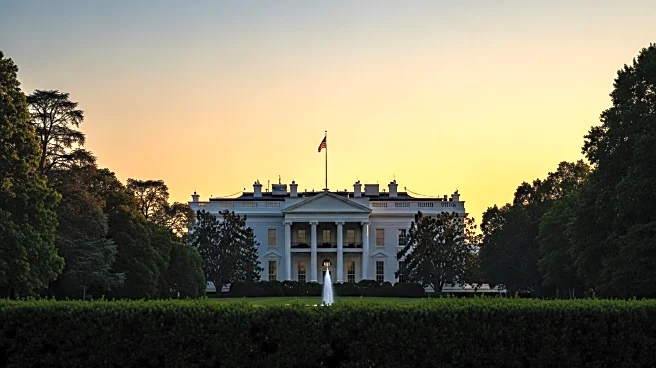What is the story about?
What's Happening?
The White House, under President Trump's administration, has played a pivotal role in brokering a hostage-return and ceasefire deal between conflicting parties. This diplomatic effort has been recognized in Israel, where President Trump is being welcomed as a peacemaker. The deal marks a significant step in easing tensions and fostering peace in the region, highlighting the U.S.'s influence in international diplomacy.
Why It's Important?
The successful negotiation of the hostage deal underscores the United States' strategic role in Middle Eastern diplomacy. It enhances U.S.-Israel relations, potentially leading to more stable geopolitical dynamics in the region. This development may bolster President Trump's foreign policy credentials, impacting U.S. political discourse and international relations. Stakeholders in the region, including governments and civil society groups, stand to benefit from reduced hostilities and increased cooperation.
What's Next?
Following the deal, there may be further diplomatic engagements aimed at solidifying peace and addressing underlying conflicts. The U.S. could leverage this success to mediate additional agreements, potentially involving other regional actors. Observers will be watching for reactions from major stakeholders, including political leaders and international organizations, which could influence future diplomatic strategies.
Beyond the Headlines
This development may have deeper implications for U.S. foreign policy, particularly in terms of its approach to conflict resolution and peace-building. It could set a precedent for future negotiations, emphasizing the importance of diplomatic channels over military interventions. The ethical dimensions of such negotiations, including the treatment of hostages and the terms of ceasefires, may also come under scrutiny.















